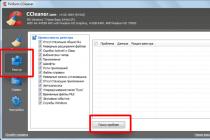Does not collect information for sale, or even more so in the interests of some kind of universal conspiracy.
Everything is much more prosaic: personal information helps to determine the tastes and habits of users. To do this, Google stores data about gender, age, interests, as well as user search queries, including voice.
For example, after analyzing the requests of an individual person, the search engine will offer goods or services related to the object of previous requests. For example, if the user was looking for where to buy a smartphone, then contextual advertising will offer accessories for this phone model.
Another object of controversy is the collection of information about the location of its clients by the "corporation of good", which makes especially nervous ones constantly turn off the transfer of geodata.
Google collects data on the movement of users using their own smartphones: when using, for example, a service Google maps the owner of the device gives out his location. The time during which this or that user was in a certain place, and even the speed of movement, are recorded.
Thanks to this information, the search engine will give out places that provide certain services closest to the user, again coordinating with his interests.
Not everyone will like the fact that a huge multinational corporation has so much of its personal data. Of course, you can turn off some of the "tracking" services, but most are unlikely to refuse, for example, watching videos on YouTube just so that Google does not know the user's preferences.
One of the examples of users outraged by the "privacy violation" was Anton Burkov, who filed a lawsuit against Google for the fact that the corporation, in his opinion, read his personal correspondence. Burkov demanded 50 thousand rubles from the company. for moral damage. ordered to recover the entire amount from the defendant, but Google's lawyers appealed the court's decision. As a result, the Moscow City Court dismissed the company's claim, obliging Google to pay 50 thousand rubles. However, the company can still appeal the decision to the Supreme Court.
However, Google is far from the only company that accumulates personal data of its customers.
Among the companies that "follow" the users of their services, there is also one, which has recently been subjected to a flurry of criticism due to the huge amount of data collected latest version operating system from Microsoft - Windows 10.
How to deal with the collection of data by organizations, whose services are used by tens of millions of people every day, is an open question. On the one hand, in the event of a software failure or hacking of data storages by hackers, the scale of the "leaking" of personal information will be simply catastrophic: the confidential data of millions of people will become public, and the corporation that leaked will be flooded lawsuits from outraged users. Of course, each company does its best to prevent such incidents.
On the other hand, the collection of personal data takes the quality of the services offered to a new level. This practice allows simple user"Surfing" the Internet with much greater comfort, helps to separate the "wheat from the chaff" and generally speeds up the search for information.
It is worth noting that the privacy policy of each corporation that collects certain data about its customers contains all the information that the user permits to store when confirming the conditions; in the event that such an agreement seems unacceptable, it is always possible to reject the terms of use.
An example of unauthorized access to personal information of users is the case with social network Facebook.
Mark Zuckerberg's company experimented with the emotional state of users
In 2014, the company set up an experiment to influence the emotional state of people by filtering positive and negative posts in the feed without notifying their users.
This incident negatively affected the image of the corporation itself: the company had to create an internal commission on ethical and legal issues of experiments, and also retrained staff in this area.
In general, we can say that there is nothing in the collection of personal data that could harm the average user: for the most part, this process is carried out to improve the quality of the services provided. So what about " Big Brother»It is too early to speak.
When you use Google services, we collect data about them. For more information on what information we collect, why we do it, and how you can manage your information, see our Privacy Policy. It also explains why the retention period of different types of data is not the same.
You can delete some data yourself at any time, others are deleted automatically, and the third, if necessary, we store for a long time. If you delete any data, we will follow special rules. As a result, your data completely disappears from our servers or is stored there only in an impersonal form. How Google Anonymizes Data
What information we keep until you delete it
There are many tools out there to help you manage the data stored in your Google account. Specifically, you can:
- delete entries on the My Activities page;
- delete photos, documents and other content;
- remove various products from your Google Account;
- completely delete your google account.
The data will remain in your Google account until you delete it. If you use our services without logging into your Google account, you can also delete some information, such as information that you used our services using a particular device, browser or application.
Data that is stored for a specific period of time
In some cases, we do not provide the ability to delete any data, but we store it for a certain period of time. The retention period for all types of information depends on the purpose of its collection. For example, so that service interfaces are displayed correctly on screens different devices, we can store information about the height and width of the browser for up to 9 months. Some data is depersonalized during a specified storage period. For example, a portion of the IP address is removed from ad data stored in server logs after 9 months, and cookie information is removed after 18 months.
Information Stored Before Deleting Your Google Account
Some information allows us to better understand how we can improve our services and how users work with them, so we keep it for the entire period of validity Google account... For example, if you delete a specific Google search query on the My Activities page, information about how often you search may be saved, but not what exactly you were looking for. When you close your Google account, your search frequency is also deleted.
Information that is stored for a long time for specific purposes
We store some information for certain purposes for a long time in accordance with the law or business requirements. For example, if Google makes a payment to you or accepts funds from you, the data is stored for as long as is necessary for tax or accounting purposes. Some purposes for which data may be stored for a long period of time:
Safe and complete deletion of data
As soon as a user deletes data from their Google Account, we immediately proceed to delete it from the respective service and all our systems. First of all, we exclude any possibility of viewing the data and using it to personalize the work with Google services. For example, if you delete information about a video you watched on the My Activities page, YouTube will no longer be able to see when the video was stopped.
Next, we run the procedure for safe and complete removal data from our storage systems. Thanks to it, we can provide protection against accidental data loss, as well as peace of mind for users. The entire procedure usually takes about two months. At the same time, there is often a period for recovering data if it was unintentionally deleted. It usually lasts up to one month.
Different Google storage systems use different procedures for secure and complete deletion of data. In many cases, the data is only erased after performing the operation multiple times. In addition, there may be slight delays so that information can be recovered in the event of an error. In other words, sometimes it takes longer than usual to delete data safely and completely.
So that, if necessary, the data can be restored, our services provide an additional means of protection - encrypted backup storage systems. In these systems, data can be stored for six months.
The data deletion procedures and timing outlined in this article can be influenced by factors such as scheduled maintenance, technical problems, glitches, and protocol errors. In order to quickly detect and eliminate such problems, we have implemented special solutions.
protection against fraud and other illegal actions;
Description
Ensuring the protection of users and other persons and Google from fraud and other illegal actions
Examples of
Google suspects someone of ad fraud.
financial statements;
Description
Engaging Google in a financial transaction, for example by making a payment to you or receiving funds from you. Long-term storage of information is often required for accounting, dispute resolution, financial compliance with taxes, escheat, anti-money laundering, etc.
Examples of
You purchase apps from the Play Store or make purchases from the Google Store
compliance with legal and regulatory requirements;
Description
Compliance with legal requirements, court order, or enforcement of a request from a government agency, as well as enforcement of the Terms of Use or investigation of possible violations thereof
Examples of
Google gets a subpoena
ensuring the operation of services;
Description
Support for the continuous operation of our products
Examples of
If you share your information with someone (for example, by sending an email) and then delete it from your Google Account, it will remain in the content that you share with others.
direct correspondence with Google.
Description
If you have contacted Google by contacting support, providing feedback, or submitting a bug, we may retain this information.
Examples of
You have submitted feedback in Gmail, Drive, or another Google app
The collection of user data allowed Google at one of the annual developer conferences to announce several of its new developments: an assistant who can make appointments by phone and set up offers for google maps a function that will complete sentences for you.
The development of such technologies has largely become possible thanks to massive data collection. Google services collect data from billions of users every day. This is one of the conditions of use. free services... Many people don't even think about it. But the one who owns the information owns the world.
Google has seven products, each with at least 1 billion monthly active users, and they cannot function without access to user data. According to a Morning Consult poll This has helped make Google one of the most famous brands in the world.
The well-known Cambridge Analytica scandal has led to stricter privacy laws, and the company at the center of the scandal has been declared bankrupt.
Google walks on thin ice
Harvard Business School professor David Yoffi says:
"Search as well as mobile devices equipped with Google play perfectly understand their user. This understanding is achieved through the collection and storage of your personal data.
Facebook had a stated policy for the past three years that most of us thought was acceptable until Cambridge Analytica came to light. "
Where does the data come from?
The more Google products you use, the more Google may collect data about you. Whether it is Gmail, operating Android system for smartphones, YouTube, Google Drive, Google Maps and, of course, Google Search - the company collects gigabytes of data about you.
Google suggests free access to their services, showing you targeted ads that generated $ 31.2 billion in revenue in the first three months of 2018 alone.
The company's data collection practice also includes scanning Email to retrieve data keywords for use in other products and Google services and to improve the capabilities of its machine learning... This information was confirmed by the representative of Google Aaron Stein.
“We can analyze [email] content to customize search results to better detect spam and malware,” he added.
But that is not all. Google says it is also using some of its datasets to "help build the next generation of next-generation AI solutions." On Tuesday, Google released "Smart Replies," in which artificial intelligence helps users complete sentences.
Consultant for information technology Dylan Curran recently uploaded everything he had on Facebook and got a 600MB file. A similar file with personal data from Google was 5.5 gigabytes, which is nine times more!
“This is one of the craziest things in the modern era, we would never allow a government or corporation to put cameras or microphones in our homes or track locations on us, but we went ahead and did it ourselves because ... I want to watch videos of cute cats and dogs, ”wrote Curran.
What does Google guarantee?
The company has set various restrictions on the use of this data. The company does not sell your personal information, makes user data anonymous after 18 months and invites users to delete the collected personal data in part or in whole. These innovations make it harder for marketers to try to identify your beliefs, sexual interests, or personal difficulties.
However, this does not prevent the company from selling ads themselves, which can be narrowed down to the user's zip code. When combined with a fair number of other categories of interests and user behavior, it is easier for Google advertisers to identify target audience, which means creating the most successful advertising campaigns.
What can you do about it?
Users can see and restrict the data collected by Google by changing their advertising preferences.
The internet giant offers customizable controls to opt out of being tracked through ad cookie file Google, and also limit whether you will serve targeted ads based on your interest groups and categories. You can also view and delete many of your personal tracking data about yourself, including your entire search history and any geolocation data that may have been tracking your every physical movement if you were logged in. Google services on your phone.
“We provide users with controls to delete individual items, services, or their entire account,” Stein told Google. “When a user chooses to delete data, we go through a process over time to safely and completely remove it from our systems, including backups. We save some data with the user's Google account, such as when and how they use certain features, for as long as Account will not be deleted. "
Internet companies make money on the data of their users, knowledge of our preferences allows us to show us the most relevant ads. Every user action on the Internet is tracked. ... Now we figured out what you can extract useful from the database that Google corporation collects.
How does Google collect information?
The origins of creation search engine google.com was a science project of Stanford students Larry Page and Sergey Brin. In March 1996 they launched their first search robot, September 15, 1997 registered the domain www.google.com. The company was officially established on September 4, 1998, and in October 2015, Google Inc. reorganized into the international conglomerate Alphabet Inc. For less than 20 years, the holding's technological products have not been used only by those who have never logged on to the Internet. Now the company has over a hundred different services, programs and applications which represent the whole ecosystem.
All information is linked to your Gmail account. The principle is quite simple: applications and services provide more options or do not work at all without authorization, and upon first launch they ask for permission to collect personal data to improve the algorithms. Tracking can be turned off by sacrificing some amenities (sometimes without any loss at all), but, as practice shows, license agreement almost nobody reads. Tells the most about you mobile phone especially on Android platform.
First of all, the company collects data in order to sell more personalized ads. Also, collecting information about the operation of applications helps to speed up and improve their functionality. Each user becomes an almost free tester, and this significantly reduces the final cost of the product.
What does Google know about you?
Google may know more about its users than their close friends. In addition, the "corporation for good" stores information that you have long forgotten.
Here is a partial list of user data that Google holds: name; floor; birthday; personal numbers and contacts; search queries and surfing the Internet; preferences and hobbies; movement in the real world, including favorite places, place of work, which route you get to it and on what transport; in some cases, the system has a recording of your voice and even the ability to identify you by a photograph.
In the google account settings, all information is distributed in three main sections "Security and Login", "Confidentiality" and "Account settings".
Find the lost, limit the suspicious
In chapter "Security and Login" can strengthen security your account; change password and add backup mail; according to prompts step by step find lost phone , on which your account is used, and if the device is on the Android platform, you can block it and write a message to the finder.

Be sure to check on what devices at what time and even in what place your account is used, and suspicious actions... If you notice anything strange, you should change the password immediately, and for reliability you can add two-step authentication;

At the very bottom of the section security, there is a switch that is responsible for automatically blocking unreliable applications, you can also conduct a manual audit in a subsection "Applications that have access to the account"... If you click on any applications in the list that appears, detailed information will expand what privileges the program has. It is worth taking a closer look at the list and turning off what you have not used for a long time or what you don’t trust.

Google knows where you were last summer
Confidential section- a real find for a spy. For starters, in a couple of clicks, you can rewrite personal information.
All contacts from mail and applications, as well phone numbers from synchronized devices are located in the corresponding tab. In the "More" section of the side menu, you can make a copy or, conversely, download new contacts from the archive and other services, and the tab just above will show who you often communicate with.
Then it's helpful to look into the settings tracking your actions... You can prohibit or, conversely, allow the collection of information from devices, transfer of search history, locations, voice control and YouTube views... Each item has a short description, and the decision is made in one click on the slider on the right.

In a separate window, you can see the history of your actions: search queries, including voice, watched videos and visited sites. The search bar has a built-in filtering function by service name, subject and date. By the same criteria, you can clear the history by clicking on the three dots in the right upper corner of each block or using a special delete history tab.

Timeline in Google Maps shows the places you have visited. You can see when you were there by double-clicking on the mark. Also in the menu, which is located in the upper left corner, you can select a day, month, year to see your route for that day, but not earlier than when it was included this function ... Every year the service improves: the later the chronology, there is more and more accurate information in it, right down to the transport on which you traveled. If necessary, each entry can be deleted by clicking on the trash can icon.

myaccount.google.com
There is no separate link to Google Photos settings in the menu, although Android devices usually have the program by default. If desired, it can be installed on Apple products. Many users do not notice that the application, when synchronizing with a google account, stores photos on the network. Only the owner of the account has access to them, but in the settings you can create shared albums. The quality of the saved photos is also selected there. The original takes up the size of a Google drive, and the compressed has no limits. In the settings, you can give permission to group photos with similar faces, this will make it possible to link a person's photos to his contact.
The service itself is quite convenient, it allows you to find photos by date, location, or you can simply enter what you are looking for in the search bar. If you want to delete everything from Google servers, be sure to turn off syncing in the app on your devices so that your photos won't disappear.

Screenshot photos.google.com
What is being advertised to you and why?
Advertising preferences collected based on your gender, age and interests. If the list of interesting topics includes something that you are not interested in or do not like, then each of the points can be rewritten or blocked at your discretion.
If you deactivate the switch in the right corner of the top panel, then personalized advertising in Google partner networks will be disabled, and by the link at the bottom of the page - on third-party services.
Users are given the right to install a plug-in from Google in their browser, it will block ad personalization, even if it is enabled in the account settings: for Chrome, Mozila Firefox and Internet Explorer.
It is worth recalling that in both cases, advertising will not disappear anywhere: it will be less relevant; some announcements cannot be blocked or muted; more often than not, ads will be based on the content of the open web page.
There are applications that completely block ads in the browser, but then the sites you visit will stop earning.

How to delete and back up all data
In the depths of the privacy settings, there is a transition to Personal Area... It provides a list of the main services and their content. Each tile is clickable, when clicked, it gives detailed information, and in the right corner of the drop-down list, an ellipsis will bring up an additional menu, which for some services allows you to download all the information or delete it.

To download everything that Google stores about you in a few clicks, you need to go to the export menu. In it, you can select the services you need, or just click on, and then an additional menu will appear. In it, you can select the archive format (including splitting the archive into several parts), as well as a service or a download link. The old account can collect dozens or even hundreds of gigabytes of data. Therefore, it takes from a couple of hours to several days to create an archive. When it is ready, the system will notify you by mail.

Screenshot takeout.google.com
The data deletion menu is divided into deleting accounts in services YouTube, Google+, Play Games and Gmail. The user also has the option total destruction In chapter "Account settings", where you will be asked twice for confirmation, since a complete purge will affect many useful services associated with the account. For example, internet banking can be linked to Gmail... Just in case, you can leave the path for recovery by adding a backup mail and phone number in the corresponding columns.
For emergencies, if something happens and you will not use your account for a long time, choose a friend or relative who will have access to your data. In the menu, you need to select the period of inactivity (from 3 to 18 months), the list of data and the person who will receive it. After the specified period, the account will be blocked, and the trustee will receive an SMS message with access to the mail. You can also specify that everything should be destroyed automatically 3 months after deactivation.














